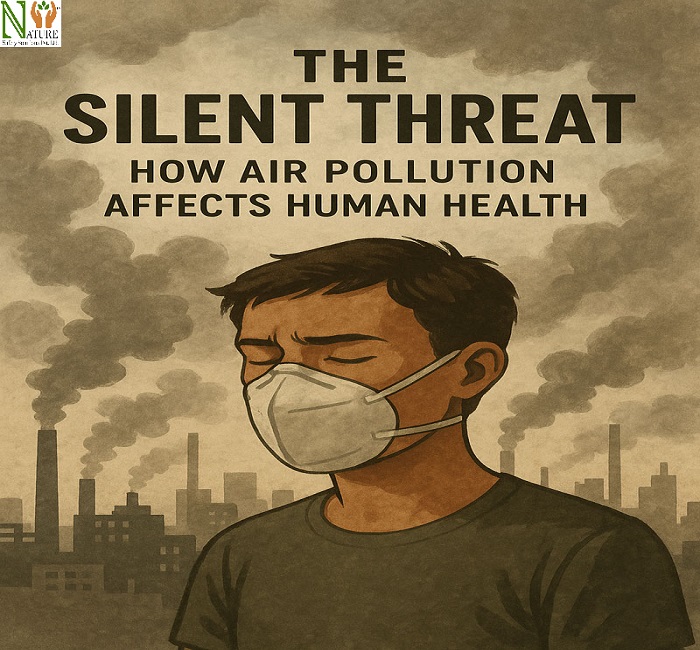Air pollution is a serious problem that we often overlook because we can’t always see it. Every breath we take may carry harmful particles or gases. These invisible pollutants affect our health, damage the environment, and contribute to climate change.
Whether we live in busy cities or quiet towns, air pollution reaches us all. To protect ourselves and our surroundings, we must understand what causes air pollution, how it harms us, and what we can do to reduce it.

What Is Air Pollution?
Air pollution happens when harmful substances mix with the air we breathe. These can be tiny particles, smoke, dust, or toxic gases. The pollution comes from vehicles, factories, burning fossil fuels, and even natural events like wildfires. Once in the air, these substances spread and affect both people and nature.
Where Does It Come From?
The most common source of air pollution is human activity. Vehicles release exhaust fumes into the air. Industries burn coal or gas, adding more harmful gases.
Construction sites and farming also release dust and chemicals. Natural events, such as forest fires or volcanic eruptions, can make the air worse, though less frequently.
How It Affects Our Health
Breathing polluted air over time can make people sick. It can cause coughing, asthma, and other lung problems. Long-term exposure increases the risk of heart disease, lung cancer, and stroke.
Children and older adults are more at risk. Even healthy people may feel tired or find it harder to breathe in polluted environments.
Impact on the Environment
Air pollution doesn’t only harm humans. It also damages plants, animals, and the climate. Polluted air leads to acid rain, which can harm crops and forests.
Some gases trap heat in the atmosphere, making the planet warmer. This affects weather patterns and increases the risk of natural disasters.
How We Can Reduce It
Everyone has a role in fighting air pollution. Using public transport, walking, or cycling helps reduce emissions. Saving energy at home and avoiding open burning also makes a difference.
Industries can reduce pollution by using cleaner fuel and better technology. Governments can support change through rules and public awareness.
Also read:

Pingback: Rabindranath Tagore Jayanti: Celebrating the Legacy of a Timeless Visionary -
Pingback: The Role of EHS Professionals in a Post-Pandemic World -
Pingback: Electric Safety at Work: A Guide for Employees and Employers -
Pingback: E-Waste and Environmental Safety: A Ticking Time Bomb -
Pingback: Agriculture and Pesticides: Balancing Productivity and Public Health -